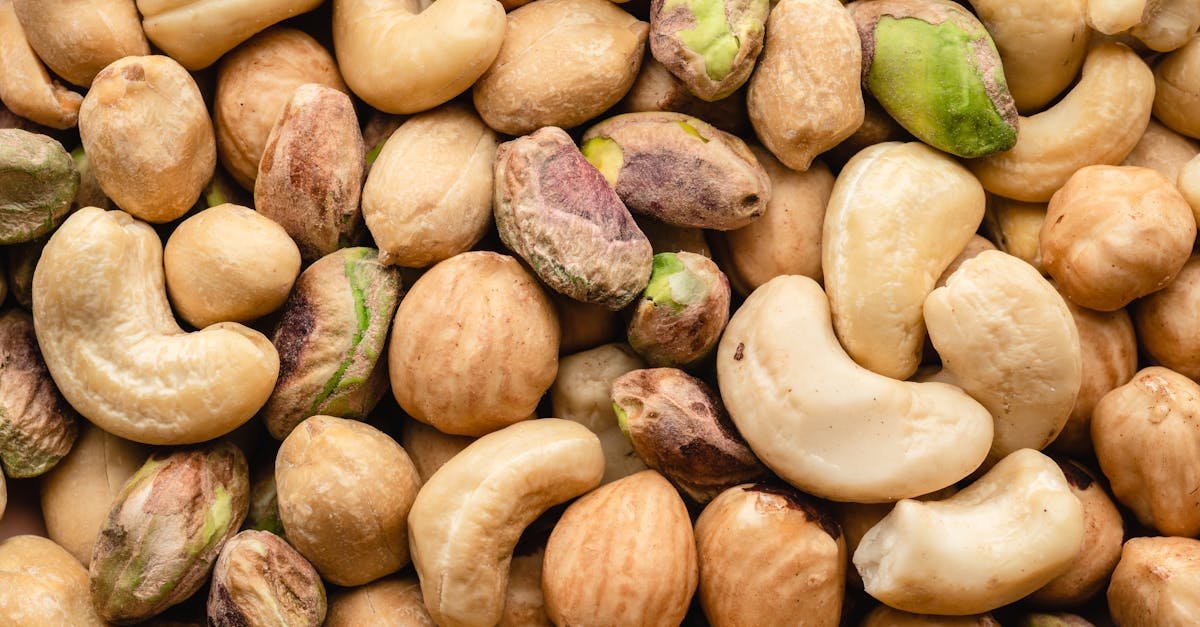Table of Contents
Unlock Your Potential: The Powerful Benefits Of Adding Protein To Your Diet
So, What Exactly IS Protein, Anyway?
Why All the Fuss About Protein? The Body’s MVP
Muscle Magic: Building and Repairing Like a Pro
The Weight Management Wonder Weapon
Beyond Muscle: Strengthening Your Bones
Your Body’s Security Team: Immune System Support
Sustained Energy: Avoiding the Slump
Beauty from Within: Healthy Hair, Skin, and Nails
Where to Find This Powerhouse Nutrient?
How Much Protein Do YOU Need?
Wrapping It Up: Embrace the Power of Protein
Unlock Your Potential: The Powerful Benefits Of Adding Protein To Your Diet
Hey there! Ever feel like you’re doing everything right – hitting the gym, trying to eat healthy – but something’s still missing? Maybe you’re not seeing the muscle definition you want, or perhaps you’re constantly battling cravings and energy slumps. What if I told you the secret weapon might be something you’re already eating, just maybe not enough of? Let’s talk about protein.
Yeah, protein! It’s not just for bodybuilders chugging shakes (though they’re definitely onto something). This essential macronutrient is a fundamental building block for, well, pretty much everything in your body. Getting enough protein can be a total game changer for your health, fitness, and overall well being. Ready to dive deep into why adding more protein to your plate could be one of the best decisions you make for yourself? Let’s get into it!
So, What Exactly IS Protein, Anyway?
Before we jump into the awesome benefits, let’s quickly break down what protein actually is. Think of it like LEGO bricks for your body. Proteins are large, complex molecules made up of smaller units called amino acids, linked together in long chains. There are 20 different types of amino acids, and the specific sequence they’re arranged in determines that protein’s unique structure and function.
Now, here’s the kicker: nine of these amino acids are called essential amino acids. Why essential? Because your body can’t make them on its own; you absolutely have to get them from the food you eat. Foods containing all nine essential amino acids are called complete proteins (think meat, dairy, eggs, soy). Incomplete proteins are missing one or more, but hey, you can combine different plant based foods throughout the day to get the full set!
Why All the Fuss About Protein? The Body’s MVP
Okay, so protein is made of amino acids. Big deal, right? Oh, it’s a huge deal! Protein isn’t just sitting around; it’s actively working, performing a staggering array of vital tasks throughout your body. It’s like the Most Valuable Player on your internal team.
Imagine your body as a bustling city. Protein acts as the construction crew (building and repairing tissues), the transportation network (carrying oxygen and nutrients), the communication system (hormones), the security force (antibodies in your immune system), and even part of the power grid (it can be used for energy, though that’s not its preferred job). Without enough protein, the whole city starts to run inefficiently. Things break down, messages get lost, and defenses weaken. See? It’s pretty darn important!
Muscle Magic: Building and Repairing Like a Pro
This is probably the benefit most people associate with protein, and for good reason! Whether you’re aiming to build serious muscle mass, tone up, or just maintain the muscle you have (which becomes increasingly important as we age), protein is your best friend.
Every time you exercise, especially strength training, you create tiny tears in your muscle fibers. Sounds bad, but it’s actually how muscles grow stronger! Your body needs to repair this damage, and guess what the primary repair material is? You guessed it – protein! Specifically, those amino acids we talked about.
Kickstarting Muscle Protein Synthesis
Eating protein triggers a process called Muscle Protein Synthesis (MPS). This is the scientific way of saying “muscle building.” Think of it like flipping the switch to “ON” for muscle repair and growth. Consuming adequate protein, particularly after a workout, provides the necessary amino acids to maximize this MPS response. It ensures your body has the raw materials readily available to patch up those micro tears and build the muscle back stronger and slightly bigger than before. Without enough protein, it’s like asking a construction crew to build a wall without giving them enough bricks – the progress will be slow and incomplete.
Holding Onto Your Gains: Preventing Muscle Loss
Protein isn’t just about building new muscle; it’s crucial for preserving the muscle you already have. As we get older, we naturally tend to lose muscle mass – a process called sarcopenia. This can lead to weakness, reduced mobility, and a higher risk of falls. Furthermore, if you’re trying to lose weight by cutting calories, you risk losing precious muscle along with fat if your protein intake isn’t sufficient.
Why does this happen? Because when energy (calories) is scarce, or if dietary protein is low, your body might start breaking down muscle tissue to get the amino acids it needs for other essential functions. Eating enough protein signals to your body, “Hey, we’ve got plenty of building blocks here, no need to dismantle the existing structures!” This helps preserve lean body mass, keeping you stronger and more functional, even during weight loss or aging.
The Weight Management Wonder Weapon
Struggling with weight loss or maintenance? Upping your protein intake might be the missing piece of the puzzle. It tackles weight management from multiple angles, making it a powerful ally in achieving and maintaining a healthy weight.
Feeling Fuller, Longer: The Satiety Factor
Out of the three macronutrients (protein, carbs, and fat), protein is by far the most satiating. This means it helps you feel full and satisfied after eating, and keeps you feeling that way for longer. How does it work its magic?
Protein influences several hormones that regulate appetite. It boosts levels of satiety hormones like PYY and GLP 1, which signal to your brain that you’re full. At the same time, it reduces levels of the hunger hormone ghrelin. It’s like turning down the volume on your hunger signals while amplifying the “I’m satisfied” message. This translates to naturally eating fewer calories throughout the day because you simply don’t feel as hungry or deprived. Fewer hunger pangs mean less chance of reaching for unhealthy snacks between meals!
Turning Up the Heat: Boosting Your Metabolism
Did you know that simply digesting food burns calories? This is called the Thermic Effect of Food (TEF). And guess what? Protein has a significantly higher TEF compared to carbohydrates and fats.
Your body has to work harder (and thus burn more energy) to break down, digest, and process protein. While carbs and fats might have a TEF of around 5-10%, protein clocks in at a whopping 20-30%! So, if you eat 100 calories worth of protein, your body might use 20-30 of those calories just processing it. Over the course of a day, this adds up, giving your metabolism a nice little boost without you even having to lace up your running shoes (though you should still do that!). It’s like switching your car from standard fuel to premium – you get a bit more efficient burn.
Curbing Those Pesky Cravings
Ah, cravings. Especially those late night urges for something sweet or salty. They can derail even the most well intentioned eating plans, right? Protein can help here too. By promoting satiety and helping to stabilize blood sugar levels (unlike high sugar, refined carb snacks that cause spikes and crashes), protein can significantly reduce cravings and the desire for snacking, particularly later in the day. A protein rich breakfast, for example, has been shown to reduce subsequent calorie intake and cravings compared to a lower protein, higher carb breakfast. It sets you up for better choices throughout the day.
Beyond Muscle: Strengthening Your Bones
We often hear about calcium and Vitamin D for bone health, but protein plays a vital supporting role too! For years, there was a misconception that high protein diets could leach calcium from bones, but current research suggests the opposite is true. Protein is actually essential for strong, healthy bones.
Think about it: bones aren’t just inert minerals; they have a protein matrix that provides structure and flexibility. Adequate protein intake is necessary for optimal bone mass development during growth and for preserving bone density as we age. Studies show that higher protein intake is associated with better bone mineral density and a lower risk of fractures, especially in older adults. It seems protein works synergistically with calcium to keep your skeleton strong and resilient. It’s like the steel framework within a concrete building – both are needed for strength.
Your Body’s Security Team: Immune System Support
Want to stay healthy and fight off those pesky bugs? Protein is crucial for a robust immune system. Antibodies, the specialized proteins that identify and neutralize foreign invaders like bacteria and viruses, are made almost entirely of protein.
Without enough dietary protein, your body can’t produce enough antibodies, leaving your immune system weakened and less effective at fighting off infections. Other components of the immune system, like certain immune cells, also rely on protein for their structure and function. So, ensuring adequate protein intake is like making sure your body’s security team has all the personnel and equipment it needs to protect you effectively.
Sustained Energy: Avoiding the Slump
Do you experience that dreaded mid afternoon energy crash? While protein isn’t the body’s preferred source of immediate energy (that’s carbohydrates), it plays a key role in maintaining sustained energy levels.
Unlike simple carbs that can cause rapid spikes and subsequent crashes in blood sugar, protein digests more slowly. Including protein in your meals helps to slow down the absorption of carbohydrates consumed at the same time. This leads to a more gradual rise and fall in blood sugar levels, preventing those dramatic energy dips and promoting more stable, consistent energy throughout the day. It’s the difference between a quick burst of a firework (simple carbs) and the steady glow of a lamp (protein included meal).
Beauty from Within: Healthy Hair, Skin, and Nails
Dreaming of luscious hair, glowing skin, and strong nails? Protein is a key ingredient! Hair and nails are primarily made of a protein called keratin. Your skin relies on proteins like collagen and elastin for its structure, firmness, and elasticity.
If your protein intake is lacking, your body will prioritize using the available protein for more critical functions (like organ repair or immune response), leaving less for things like hair growth or skin renewal. This can manifest as brittle nails, thinning hair, or dull, less supple skin. Ensuring you get enough protein provides the necessary building blocks for these tissues, contributing to a healthier, more vibrant appearance from the inside out.
Where to Find This Powerhouse Nutrient?
Okay, you’re convinced! You need more protein. But where do you get it? Luckily, protein is found in a wide variety of delicious foods, catering to all dietary preferences.
Animal Based All Stars
These sources are typically ‘complete’ proteins, meaning they contain all nine essential amino acids:
- Lean Meats: Chicken breast, turkey, lean beef, pork loin.
- Fish: Salmon, tuna, cod, mackerel (bonus points for omega 3 fatty acids!).
- Eggs: A nutritional powerhouse, packed with protein and other nutrients.
- Dairy: Greek yogurt, cottage cheese, milk, cheese.
Plant Powered Proteins
Plants can be excellent sources of protein too! While many are ‘incomplete’ on their own, eating a variety throughout the day ensures you get all essential amino acids:
- Legumes: Lentils, beans (black, kidney, chickpeas), peas, edamame.
- Nuts and Seeds: Almonds, peanuts, chia seeds, hemp seeds, pumpkin seeds.
- Soy Products: Tofu, tempeh, edamame (soy is a complete plant protein!).
- Whole Grains: Quinoa (another complete protein!), oats, buckwheat.
- Certain Vegetables: Broccoli, spinach, potatoes (yes, really!) contain smaller amounts.
Don’t forget protein powders (whey, casein, soy, pea, rice) can be a convenient way to supplement your intake, especially around workouts, but whole food sources should always be the foundation.
How Much Protein Do YOU Need?
This is the million dollar question, and the answer is… it depends! Your individual protein needs vary based on several factors, including your age, sex, weight, activity level, and health goals.
The general Recommended Dietary Allowance (RDA) is 0.8 grams of protein per kilogram of body weight (or about 0.36 grams per pound). However, this is often considered the minimum needed to prevent deficiency, not necessarily what’s optimal for health, muscle building, or weight management.
Many experts and studies suggest higher intakes are beneficial, especially for active individuals, older adults, and those trying to lose weight or build muscle. Recommendations often range from 1.2 to 2.2 grams per kilogram of body weight (or 0.54 to 1 gram per pound). For example:
- Sedentary individuals: Might stick closer to the RDA.
- Active individuals/Regular exercisers: Often benefit from 1.2-1.7 g/kg.
- Those aiming for muscle growth: May aim for 1.6-2.2 g/kg.
- Those aiming for weight loss (while preserving muscle): Often recommended 1.2-1.6 g/kg.
- Older adults: May need 1.0-1.3 g/kg or more to combat sarcopenia.
It’s always a good idea to spread your protein intake throughout the day, aiming for maybe 20-30 grams per meal, rather than trying to cram it all in at dinner. If you’re unsure, consulting with a registered dietitian or healthcare provider can help you determine the optimal protein target for your specific needs and goals.
Wrapping It Up: Embrace the Power of Protein
Wow, we’ve covered a lot! From building and repairing muscle to managing weight, boosting metabolism, strengthening bones, supporting immunity, and even contributing to healthy hair and skin – the benefits of adequate protein intake are truly far reaching and incredibly impactful. It’s not just a nutrient; it’s a fundamental component for a thriving, energetic, and resilient body.
Making a conscious effort to include sufficient protein in your diet doesn’t have to be complicated. Focus on incorporating diverse protein sources into your meals and snacks throughout the day. Listen to your body, pay attention to how you feel, and remember that small, consistent changes can lead to significant improvements in your overall health and well being. So, go ahead, give your body the building blocks it deserves and unlock your full potential!
FAQs
1. Can eating too much protein be harmful?
For generally healthy individuals, moderately high protein intake (within the ranges often recommended for active people, e.g., up to 2.2g/kg) is considered safe. Concerns about kidney damage primarily apply to those with pre existing kidney disease. Extremely high intakes over long periods might pose risks, but for most, staying within reasonable, goal oriented ranges is fine. However, it’s crucial to maintain a balanced diet overall and stay hydrated. If you have kidney issues or other health concerns, definitely consult your doctor before significantly increasing protein intake.
2. Does protein timing matter, especially around workouts?
While the concept of an “anabolic window” (a short period post workout for optimal protein absorption) might be less rigid than once thought, consuming protein within a few hours around your workout (before or after) is generally beneficial for muscle repair and growth. The most important factor, however, is meeting your total daily protein goal consistently. Spreading intake throughout the day, including around workouts, seems to be a practical and effective approach.
3. Can I get enough protein on a vegetarian or vegan diet?
Absolutely! While it requires a bit more planning than an omnivorous diet, it’s entirely possible to meet your protein needs with plant based foods. Focus on incorporating plenty of legumes (beans, lentils, peas), soy products (tofu, tempeh, edamame), nuts, seeds, and whole grains like quinoa. Combining different plant protein sources throughout the day helps ensure you get all the essential amino acids.
4. Will eating more protein automatically make me bulk up?
No, simply eating more protein won’t magically make you bulky. Building significant muscle mass (bulking up) requires a combination of sufficient protein intake, a calorie surplus (eating more calories than you burn), and consistent, challenging resistance training. If you’re eating protein within your calorie needs for maintenance or weight loss and doing moderate exercise, protein will help you preserve existing muscle or build lean muscle, leading to a more toned look, not necessarily bulk.
5. Are protein supplements necessary to meet my protein goals?
Protein supplements (like whey, casein, or plant based powders) are not strictly necessary, but they can be a convenient and efficient way to increase your protein intake, especially if you struggle to meet your goals through whole foods alone, have high protein needs (like athletes), or need a quick post workout option. However, the foundation of your diet should always be whole, nutrient dense foods. Supplements should be seen as just that – a supplement to a healthy diet, not a replacement for it.










